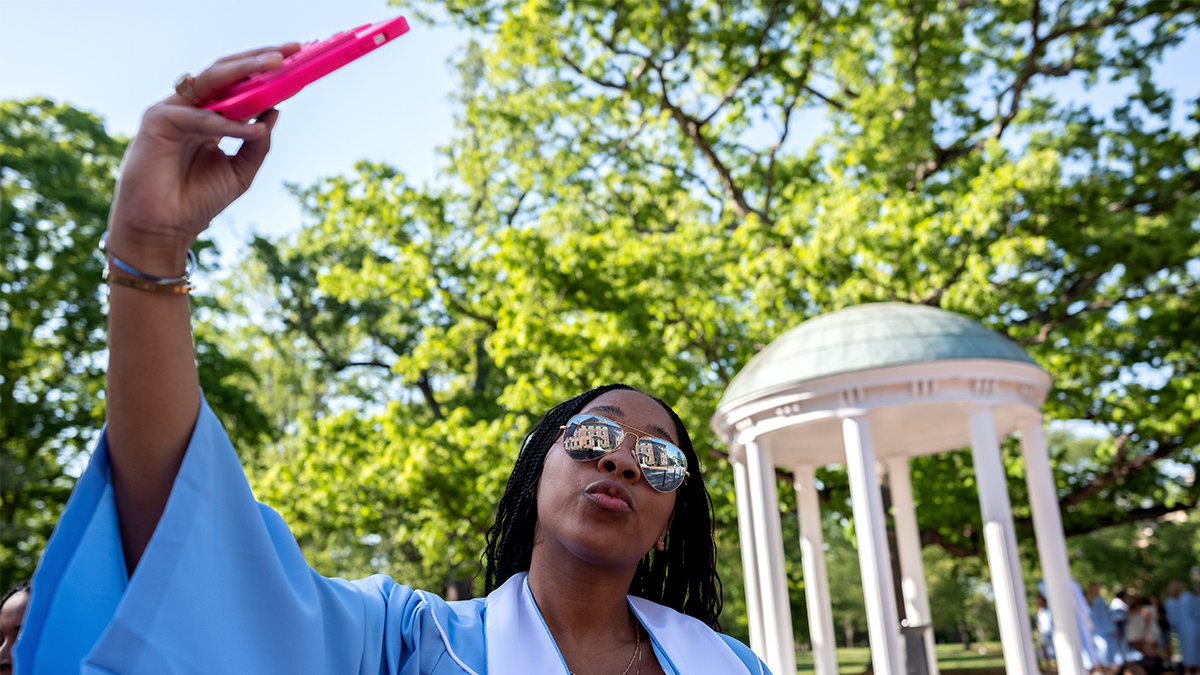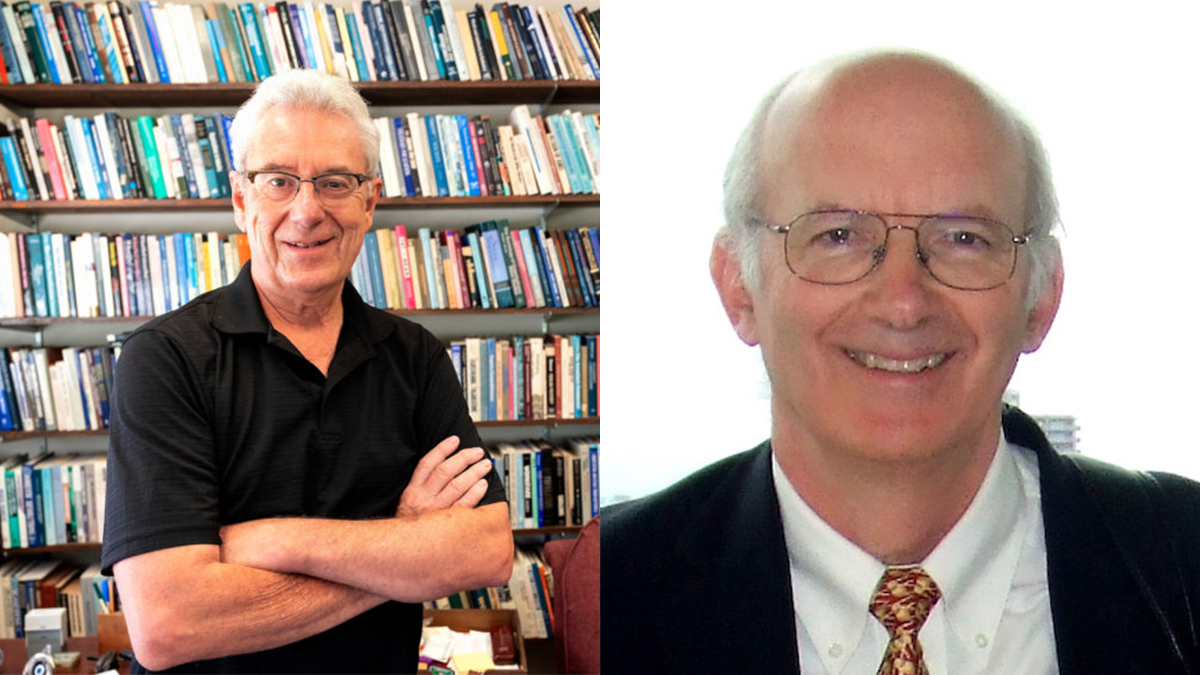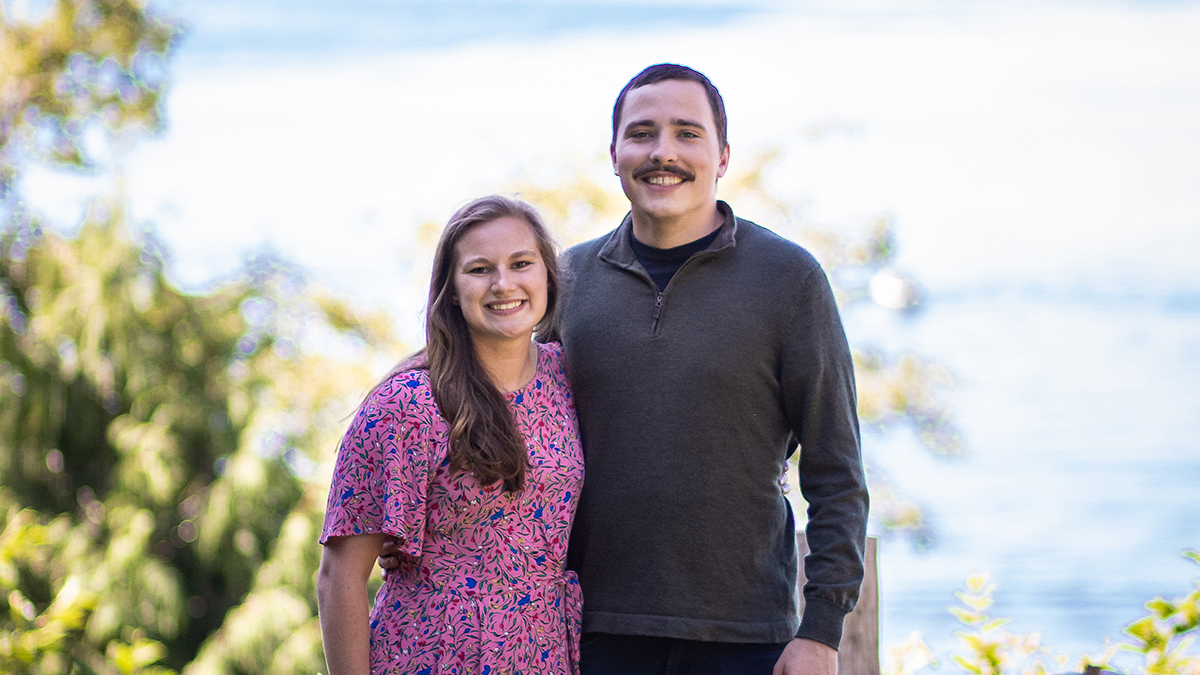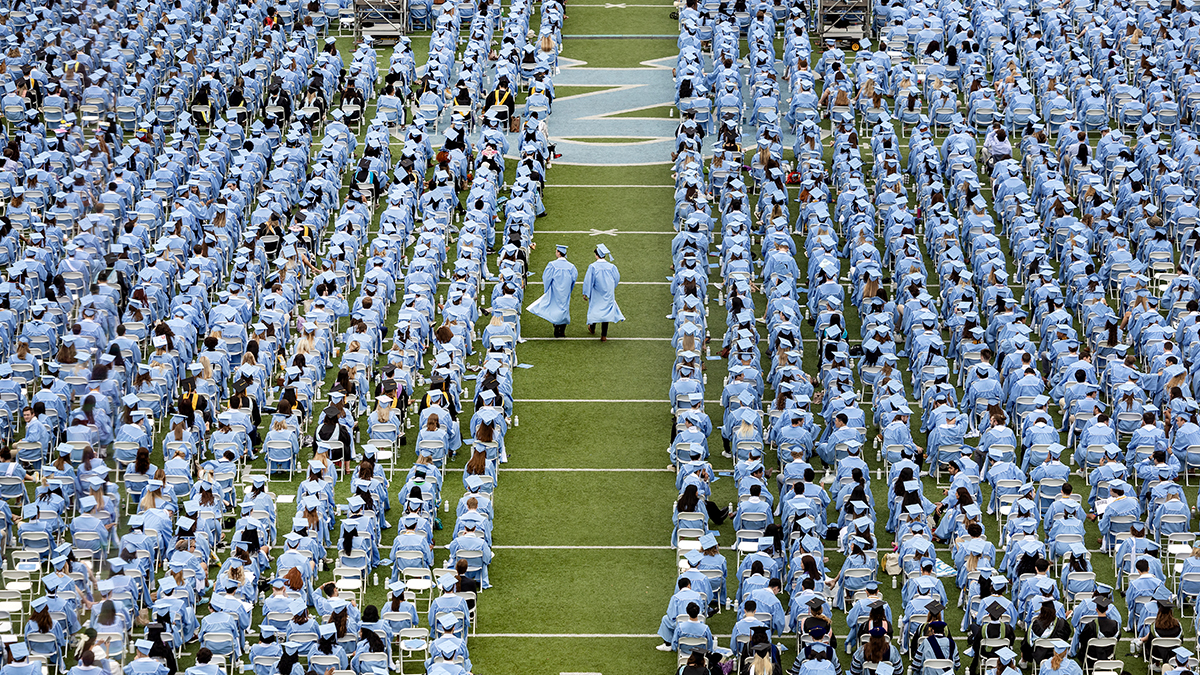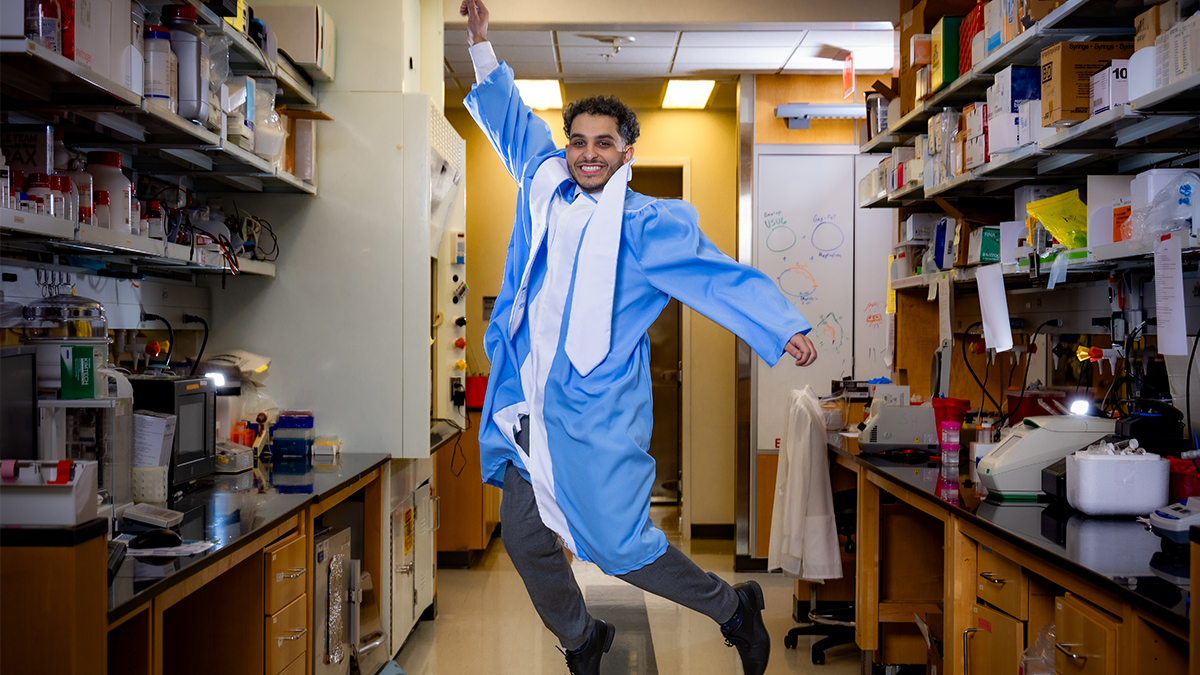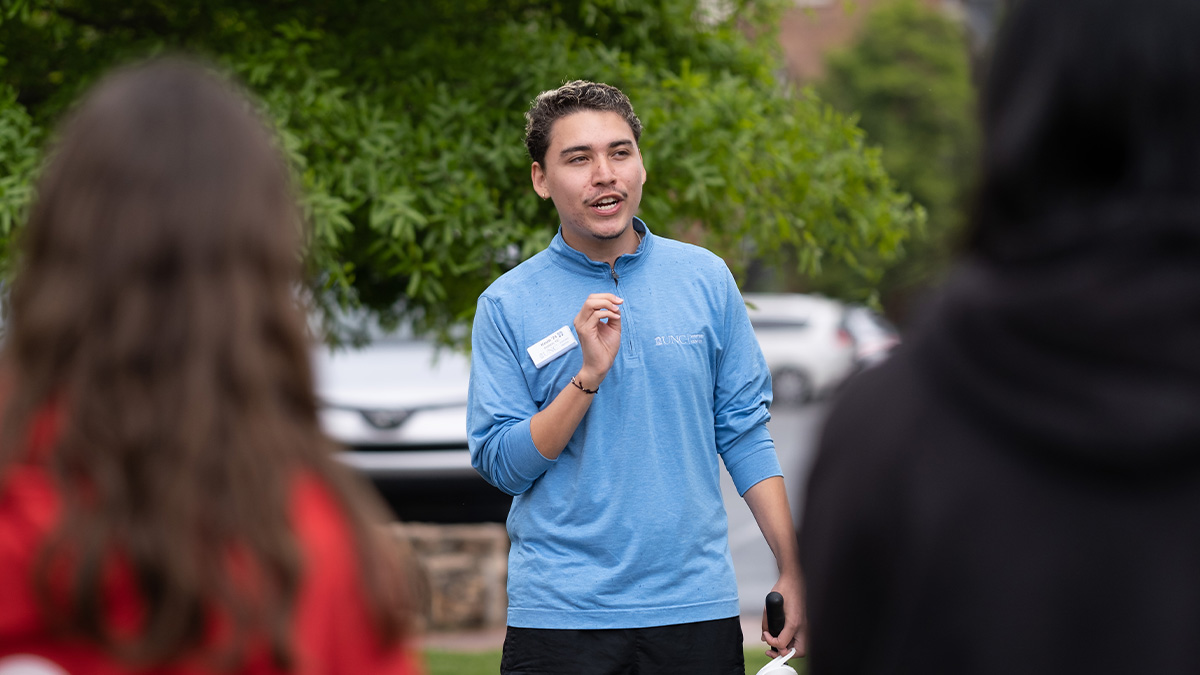Five junior faculty receive 2023 Hettleman Prizes
The annual awards for artistic and scholarly achievement go to those with innovative research and future career promise.
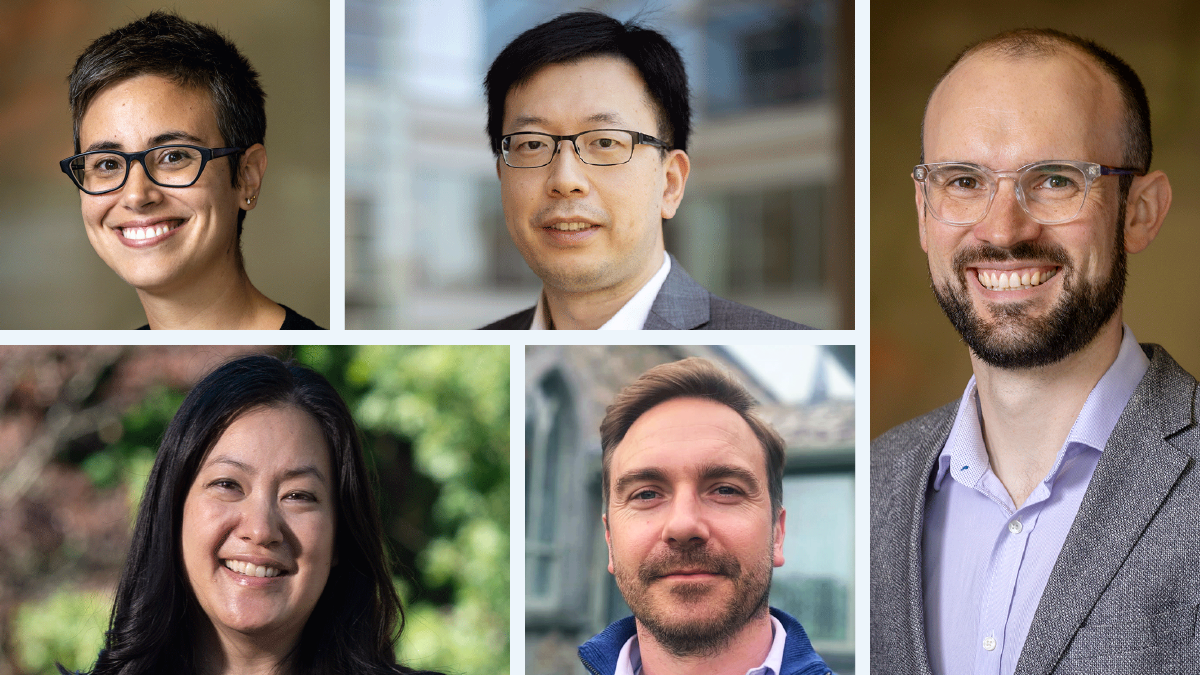
The late Phillip Hettleman and his wife, Ruth, established this prestigious award in 1986 to recognize the achievements of outstanding junior faculty. The five recipients of the $8,000 prize will be recognized at the Nov. 3 Faculty Council Meeting. They will also deliver presentations on their research during University Research Week from 3 to 5 p.m. Oct. 24 in the School of Social Work’s Tate-Turner-Kuralt Auditorium.
This year’s Hettleman Prize awardees are:
•Yaiza Canzani, associate professor, College of Arts and Sciences’ mathematics department.
•Brian Conlon, associate professor, UNC School of Medicine’s microbiology and immunology department.
•Angel Hsu, assistant professor, College of Arts and Sciences’ public policy department.
•Pengda Liu, associate professor, UNC School of Medicine’s biochemistry and biophysics department.
•Alex Worsnip, associate professor, College of Arts and Sciences’ philosophy department.
Yaiza Canzani
Canzani’s research focuses on understanding the behavior of Laplace eigenfunctions, which play a crucial role in explaining physical phenomena such as wave propagation, heat conduction, acoustics and quantum evolution.
Canzani’s work bridges microlocal analysis, partial differential equations, probability, geometry and dynamical systems. Her scholarship is internationally recognized. She was awarded a Sloan Fellowship, the Sadosky Research Prize in Analysis and a National Science Foundation CAREER grant.\
Brian Conlon
Conlon is a leader in the field of antibiotic resistance and focuses on alternative strategies to treating infections with existing antibiotics. He aims to make previously ineffective treatments work better by manipulating how the treatment is delivered on a microbial level and reversing resistance by tricking the bacteria into responding to medication.
Conlon also researches how diabetes impacts treatment for antimicrobial resistance and how to make the battleground inside someone’s body more hospitable to treatment by pairing an antibiotic with another drug.
Angel Hsu
Hsu applies data-driven approaches to evaluate climate and environmental policy, primarily at the state and local levels. She leads The Data-Driven EnviroLab, frequently calling upon others from different disciplines to collaborate on research.
Collectively, her work has been influential in shaping the research agenda among those studying global climate governance and developing the quantitative approaches used to assess the impact and performance of subnational and nonstate actors.
Pengda Liu
Liu studies cancer biology and the molecular mechanisms underlying aberrant cell signaling events in human cancer. He is using this knowledge to develop novel anti-cancer therapies.
He has established a highly productive lab at UNC-Chapel Hill as an independent and collaborative investigator. Both styles of research have led to groundbreaking discoveries and to highly cited articles. Liu has an innovative approach, melding bioengineering expertise with hi-tech biochemistry, cell biology and genetics, and applying this to drug development. His lab focuses on two key cellular signaling pathways that can lead to disease and cancer when mutated.
Alex Worsnip
Worsnip’s research of epistemology — the theory of knowledge — has made groundbreaking advances in the understanding of the nature of rationality. He proposes that there are two fundamentally distinct kinds of rationality — substantive and structural — with neither being reducible to the other, which has fascinating motivations and profound payoffs.
Worsnip made these advances in his field through a series of widely acclaimed articles published in top philosophy journals. His work on rationality culminated in a book, “Fitting Things Together: Coherence and the Demands of Structural Rationality,” which was published by Oxford University Press in 2021. He also won the prestigious Young Epistemologist Prize from Rutgers University in 2019.
